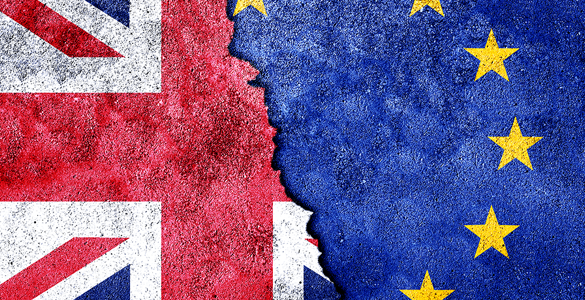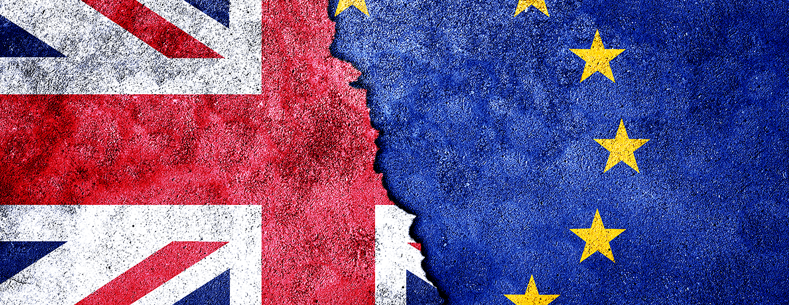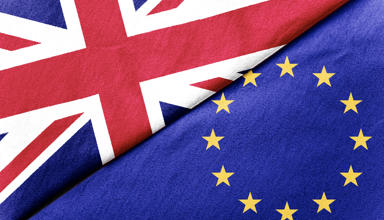On 12 July, the UK Government published its White Paper on The Future Relationship between the UK and EU (PDF748 KB). The paper is over 100 pages in length and sets out in detail the UK Government’s proposals for a future economic partnership, a future security partnership, cooperative accords on areas such as innovation and fisheries and on how the future relationship should be governed. This is the first in a series of blog posts that will explore the elements of the White Paper likely to be of most interest to Wales.
There are nine months remaining before the UK formally leaves the EU on 29 March 2019. While several of the proposals in the White Paper will be critical to the negotiations on the Withdrawal Agreement, much of the operational detail of how a future relationship will work is likely to be negotiated during the proposed transition period.
The Economic Partnership
The key feature of the UK Government’s proposals for a future economic partnership is the creation of a new Free Trade Area for goods including agri-food goods. The UK proposes the key features of an economic partnership would be:
- Zero tariffs on manufactured and agri-food goods and no quota or rules of origin requirements for UK-EU goods.
- A common rule book for goods including agri-food goods but only those rules that relate to the need for border checks. The paper states that this would require the UK to make an upfront commitment to harmonise rules with the EU and would also prevent a hard border between Ireland and Northern Ireland.
- A new Facilitated Customs Arrangement (FCA) where the UK would charge UK tariffs for goods entering the UK destined for the UK market and EU tariffs for goods entering the UK but destined for the EU market.
- UK participation in key EU agencies who play a significant role in the placing of goods on the market such as the European Medicines Agency, the European Chemical Agency and the European Aviation Safety Agency.
- A new framework on mobility that would allow UK and EU citizens to travel for tourism purposes and for short-term business purposes without the need for visas.
- Agreeing to adopt the same system and rules on state-aid and close cooperation on competition regulation.
- A new agreement on services which goes deeper than the EU’s current arrangements with third party countries but would not be equivalent to the current market access the UK service sector enjoys. This would include an agreement on the mutual recognition of professional qualifications in areas such as healthcare and the veterinary sector.
- A commitment to maintaining minimum environment, climate change and social protection standards and in particular a non-regression clause on environmental standards and domestic labour standards.
- A digital services agreement.
- Cooperation on other socio-economic areas including transport with an agreement on aviation, road transport, rail, maritime safety.
- The UK being able to pursue an independent trade policy outside of the EU where it could set its own tariffs but would be limited by the common rule book on where it could allow different product standards to the EU.
The Security Partnership
The White Paper sets out the UK Government’s proposals for a new security partnership with the EU. This would include the UK participating in some of the EU’s current security agencies but on different terms; access to key security systems, continued collaboration on defence including on research and developments, agreements on extradition, continued participation in the Galileo Satellite Programme and cooperation in areas such as health security. In particular, it suggests an on-going relationship with EU health agencies such as the European Centre for Disease Prevention and the ability for Public Health Wales to provide Health Microbiology training.
Cooperative accords
The White Paper proposes ‘cooperative accords’ in five key fields:
- Science and innovation;
- Culture and education;
- International aid and development;
- Defence research and defence capability; and
- Space
In relation to the cooperative accords on science and innovation and culture and education it states that these would seek to include access to some of the EU’s current funding programmes such as Horizon, Erasmus+ and Creative Europe as well as agreements on UK participation in EU networks and forums.
The White Paper also includes proposals for agreeing a mechanism for annual negotiations on fishing opportunities between the UK and EU which would set out arrangements for reciprocal access to each other’s waters. The White Paper states that it will continue to work with the devolved administrations on these proposals.
Governance and Institutional Arrangements
The White Paper states that for such a close and detailed future relationship to work, new institutional arrangements will be needed. It suggests that the overarching relationship for the agreement could be an association agreement. The EU has several of these in place already with third party countries. The second blog post in these series will explore what these are and how they work in more detail.
The Paper proposes a new UK-EU governing body to manage the future relationship. This would be a forum for ministers and leaders to meet on a bi-annual basis. The White Paper states that the UK Government would represent the whole of the UK on this body but would take the views of the devolved governments into account.
A Joint Committee made up of UK and EU officials would meet more frequently and discuss detailed issues about the implementation of the relationship and seek to resolve any disputes about implementation informally. A number of technical sub-committees would also be set up. Where disputes can’t be resolved in a Joint Committee the White Paper proposes a system for independent arbitration. A future blog post will explore these governance arrangements in more detail.
The role of the UK Parliament and devolved legislatures
The White Paper states that while the UK would make a commitment up-front to a common rule book, the UK Parliament would be able to decide on how common rules were implemented in UK law and could choose not to implement new laws. In choosing not to adopt new common rules the UK Parliament would accept that this would have a knock-on effect on the UK’s access to the EU market. Chapter 4 of the paper sets out a proposed mechanism for involving the UK Parliament.
In relation to devolved legislatures, the Paper states that some changes to common rules will be in areas of devolved competence. In these areas it says there will be a role for devolved governments and legislatures and that the UK Government will work with devolved governments to ensure ‘processes are put in place which reflect the devolution settlement’ and ensure changes to common rules are reflected in law across the UK. The Paper doesn’t set out if or how it will consult the devolved legislatures themselves on these processes.
Key issues for Wales
Whilst all elements of the future relationship with the EU will have impacts on the citizens and economy of Wales, some of the key questions the Assembly and Welsh Government are likely to ask about the White Paper proposals include:
- Will the proposals for the economic partnership avoid a hard-border in the Irish Sea avoiding impacts on Welsh ports?
- How will the proposed Facilitated Customs Arrangement work in practice and what impact could this have on Welsh ports, airports and road hauliers?
- Will the new economic partnership allow continued access for Welsh farmers and fishermen to the EU market?
- What role will the devolved governments and legislatures play in shaping and making decisions on the common rule book?
- If the UK Parliament opted not to adopt new common rules but Wales and/or Scotland did, what would this mean in practice?
- What will the proposals on health security, reciprocal arrangements for healthcare professionals and membership of the European Medicines Agency mean for the NHS in Wales?
- What will be the impact on Welsh universities and students of the proposals for new cooperative accords on research and education and youth and student mobility?
We’ll explore some of these questions and others in the rest of this series of blog posts on the White Paper and its proposals for a future relationship between the UK and EU.
Article by Nia Moss, National Assembly for Wales Research Service






